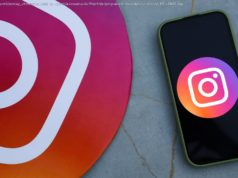Samsung’s Galaxy S10e — a new entry in the Galaxy S-series — has a few things in common with Apple’s lower-cost iPhone XR. It starts with the same exact price tag, the yellow color option, and then the similar screen design. Is this Samsung’s answer to Apple’s new iPhone entry?
Samsung needed to shake things up for its smartphone business this year — not just because it’s the 10th anniversary of its Galaxy smartphones, but also because sales have been disappointing in 2018. The strategy? Bring the features of the Galaxy S10 and S10 Plus close to par, jack up the price, and then introduce a new phone with fewer bells and whistles at what was once around the standard price of a flagship smartphone.
Sound familiar? It’s almost exactly the same approach Apple took with the iPhone XS, XS Max, and the lower-cost iPhone XR last year. The big difference is screen size — Apple made the iPhone XR sit in between the XS and XS Max, offering bigger screen than the XS despite the lower price. Samsung’s new Galaxy S10e, however, is the smallest phone of the new S10 range.
Although Samsung doesn’t completely knock off Apple, there are five ways the Galaxy S10e is similar to the iPhone XR — follow along as we break them down.
The Samsung Galaxy S10e has an Infinity-O display, meaning the selfie camera floats on the screen like a hole-punch on a piece of paper (hence the term, hole-punch camera). It’s distinctly different to the iPhone XR’s screen, which has a notch. However, the S10e is one of the first Samsung flagship smartphones since 2016 to have a non-Edge display — meaning the sides of the screen don’t curve into the edges. It’s a flat, traditional screen instead. As such, Samsung has added a thicker than usual, uniform bezel around the screen of the phone. (The S10 and S10 Plus retain the Edge display.)
The iPhone XR is easily distinguishable from the XS and XS Max because it, too, has a thicker than usual, uniform bezel surrounding the screen.
Домой
United States
USA — IT With Galaxy S10e, Samsung unapologetically rips a page out of Apple’s playbook






